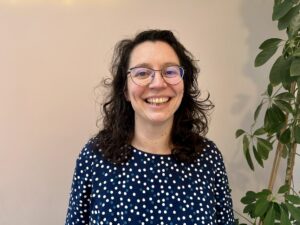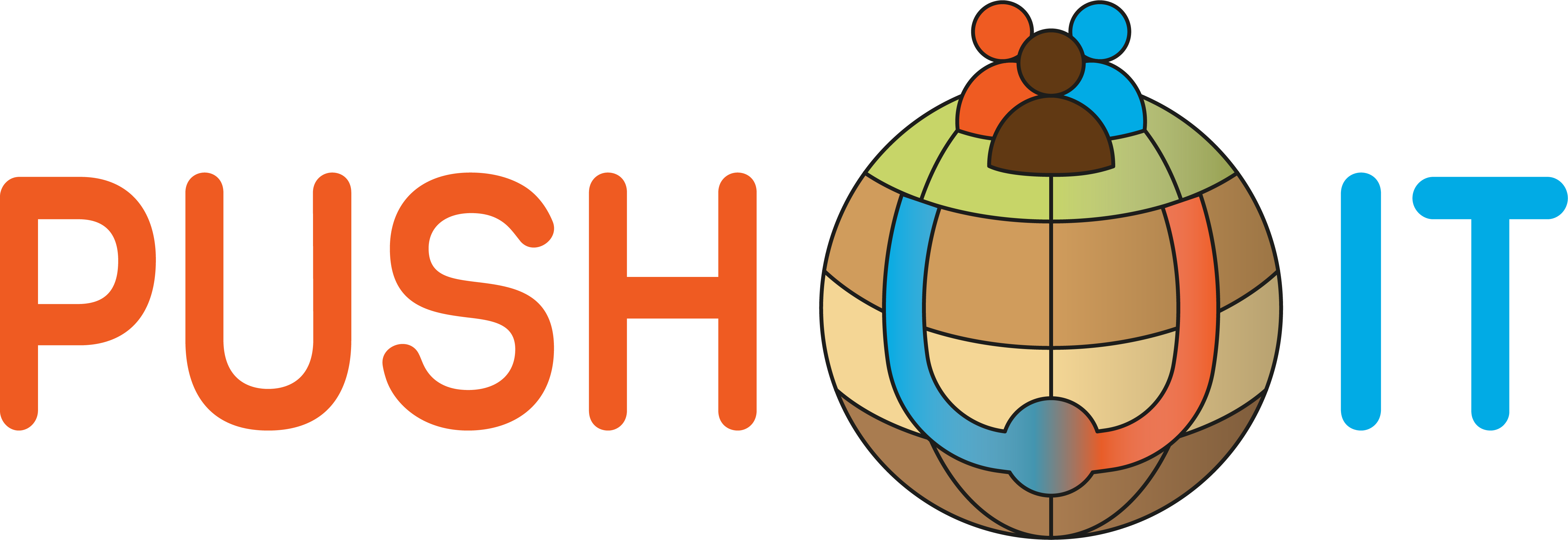Meet the scientist:
Melanie Rohse
(Anglia Ruskin University)

Can you introduce yourself briefly and tell us about your background and area of expertise?
My name is Mel Rohse, I’m a Senior Research Fellow at the Global Sustainability Institute (Anglia Ruskin University, Cambridge, UK). Originally from France, I moved to the UK to do an MA and then a PhD in conflict resolution. For my PhD, I explored the personal and collective stories we hold about place, and how the two intertwine. I used similar methods in my first postdoc and applied them to the topic of energy and communities, on which I’ve worked ever since. In recent years, I have particularly focused on societal engagement with renewable energy technologies, but I also do research in socio-hydrology and climate-related emotions. A lot of my work is interdisciplinary.
Could you explain the focus and primary objectives of your current research?
In PUSH-IT, I am part of the team of social scientists working on societal engagement across the project and at each of the sites. This means three things: (1) working with all the partners within the consortium to unpack what engagement means to them and build a project-wide approach to engagement, (2) expanding the boundaries of our understanding of societal engagement, and (3) working closely with the sites to support their thinking and practices of societal engagement. Any work with people and communities needs to adhere to ethical principles, and I oversee that our work is done ethically and with equality, diversity and inclusion principles in mind.
Why is your research important? Do you have personal drivers for tackling this topic?
Our societal engagement work matters because people matter! Without people, we won’t make the progress that we need to achieve a fair energy transition. We need to understand their concerns and their needs to respond to those as best as we can. In a past project, participants shared with me their first-hand experience of what they saw as an unfair energy project, which entrenched past injustices. This drives me to find ways to empower people with energy decision-making.
What are the main challenges and questions regarding societal engagement for underground heat storage?
This is tricky because challenges are very linked to the local context: what might be sensitive in one site might not be a concern at all at another, so I would say a key thing is to find out this information and to then tailor engagement to the specific concerns raised locally. That can take time of course. For underground heat storage, our previous research has shown there can be ‘spillover’ from past projects (not necessarily using the same or similar technologies either) that have caused issues or not been well managed and this impacts the perception of future projects.
Can you provide an update on the project’s current status and its upcoming milestones? Do you have results already?
Working on PUSH IT from a social science perspective is a long game! We don’t have any results yet because we are working with teams on their practices of societal engagement throughout the project, and at most sites this is taking off now, so come back and ask me again in a year or so how it is all going! We will also be running large scale surveys in the summer of 2024 to find out more about how regional populations around the sites perceive geothermal technologies. More on this later too.
Looking forward, what do you envision in terms of innovation and societal impact, both locally and (inter)nationally, as a result of this project?
The project has the potential to have a great societal impact locally at each of the sites, by working closely with communities to meet their heating and cooling needs. We have a big opportunity to demonstrate the value of working both across disciplines and with communities in different local contexts, and lessons from the project will be relevant to other geothermal and renewable energy projects internationally. In the process, I hope we demonstrate to policymakers and industry that publics hold an important role in energy decision-making. And highlight how policymakers can in turn lead on a culture change where societal engagement is valued and where industry is appropriately supported in its implementation.
Melanie Rohse explains her research at the General Assembly in Delft in 2023.

PUSH-IT is a project funded by the European Union’s Horizon Europe research and innovation programme under grant agreement No 101096566.
Funded by the European Union. Views and opinions expressed are however those of the author(s) only and do not necessarily reflect those of the European Union. Neither the European Union nor the granting authority can be held responsible for them.
